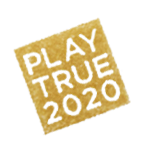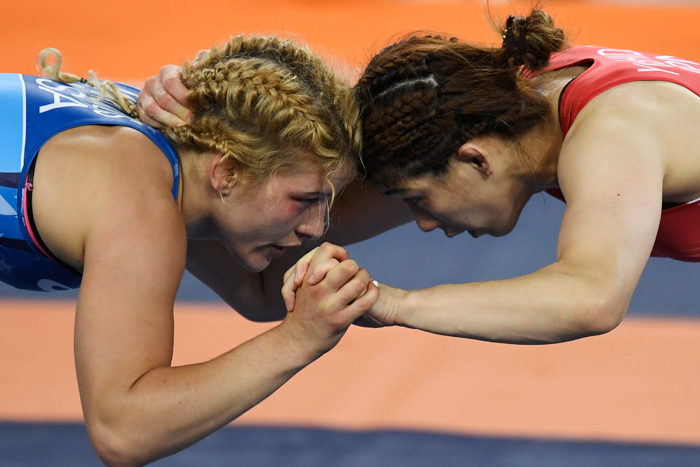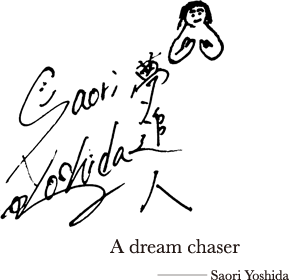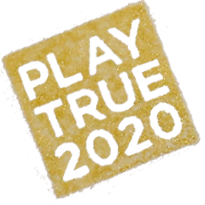




© Keita Yasukawa

My whole life up to now has been about wrestling. My father was a freestyle wrestler, who became a coach after retiring as an athlete. Following in my father’s footsteps, my two older brothers already had started wrestling when I began wrestling. My mother was an athlete, too—a tennis player. So, everyone in my family is an athlete and highly competitive. We all hate to lose. If you don’t want to lose, you have to become very good at what you’re doing. At least the logic is so simple, putting that into practice is not easy at all.
What should a person do to become very good at something? I think each person has their own way and approach. In my case, it comes down to discipline and training—and to keep working hard with a strong determination to never lose. They say that an athlete needs a good balance between mental strength, technique and physical capacity to exhibit their best performance as an athlete. I place the greatest emphasis on mental strength. Upping your technique and building physical resilience and stamina through training are of course very important, but I think the most important thing is mental strength. The athlete who has the stronger mental strength than the opponent is the one who comes out the winner.
I always wonder why I’m doing such a strenuous and demanding thing, but my dream enables me to train hard. I can push myself because I know that I need to do it to achieve what I’m aiming for, and because there are friends and team mates who has the same dream around me.


© AAron Ontiveroz

My life as a wrestler began at my father’s wrestling class at the age of three. My father was very stern, and I felt like I was being forced to train at the beginning. However, by the time that I was in junior high school, I had set my own goals and was engaging in training to become a strong athlete. It was around the same time that I started holding a clear dream of becoming an Olympian. After I went on to university, I met my current coach, Kazuhito Sakae. He was a strict coach like my father, so I hated it. But I was able to persevere because I had a dream.
In any kind of competition—not just only in wrestling—there is only one winner. Everyone else is a loser. But being a loser doesn’t necessarily mean that the person isn’t very strong or good at what they are doing. The important thing is that you train with a keen desire to win at any cost, to become better and stronger, and to go into competition that way. Your efforts never come to waste, even if you lost. The strength that is achieved only by those who gave it their all is the strength that will most definitely contribute to your future.
When coaching, my father placed the greatest emphasis on how we competed in a competition—not on whether we won or lost. The important thing was that we had done everything we could offensively. Perhaps, my father was teaching us what true strength is.
I have no doubt that being born into my family, where wrestling existed as a daily matter, and later meeting Coach Sakae built my foundation not only as an athlete but also as an individual.

© Keita Yasukawa
More than a year has passed since the Rio 2016 Olympic Games, and I am serving as a coach of the Japanese national women’s wrestling team while also training as an active wrestler. Last year, I was appointed vice president of the university which I graduated. I appear in the mass media more often now, and my life has changed from the past when it was just about wrestling. Unlike before, when my whole life was dedicated to wrestling, I am meeting people in fields that are new to me. I get a new kind of stimulus from them, and I am enjoying myself while learning. However, I think that I need to learn even more when it comes to coaching. Whether it’s complimenting, scolding or inspiring someone, there’s no meaning to it unless it touches their heart. It is not an easy thing to tell sensations and feelings through words.
We also need to deepen our knowledge of Anti-Doping. Fortunately, there have been very few Anti-Doping Rule Violation cases in the world of women’s wrestling. The thing is, if something should happen, “I didn’t know” cannot be used as an excuse. Whether it’s basic things like always keeping your food and drink where you can see them, or information on how an athlete can protect themselves and keep the sport of wrestling clean, we need to deepen everyone’s knowledge. I not only take part in Anti-Doping workshops but also teach younger wrestlers about the points to keep in mind in my daily conversations with them.
I also believe that Anti-Doping activities are necessary for us to compete as athletes in fairness. When I hear news about athletes in other sport tested positive, I can’t help thinking what a waste it is after all the work they did to become a world top-level athlete. That is a direction you’d ever take if you were pursuing “real” strength for sure.


© Keita Yasukawa
Now that I keep a little distance from a life that consisted only of wrestling, I sometimes think for a moment that it would be nice to go back to the days when that rugged world of wrestling was my entire life. But asking myself, “do I want to do that until 2020? ”, this is the question that I still haven’t found an answer.
There were many things that I learnt and experienced through wrestling. Without them, I think I would not be who I am today. Eventually, I want to communicate what I’ve gained through the wrestling to the next generation and help further boost the world of wrestling.
My current juniors in women’s freestyle wrestling are really doing well in competitions. But I want them to keep making an effort without becoming complacent. I want them to keep working at it even more in their day-to-day training, and I want to provide them with support as a coach. There are some around me who hold expectations that I will become a head coach in the future. But I think my current position as a coach, where I work in cooperation with other coaches and offer advice, is perfect for me, not the role as a head coach.
Having a dream is important. Dreams are something enables you to keep going on and trying despite repeated difficulties. It’s only after those experiences that your dream finally comes true. I think that dreams are something well worth pursuing even if you have to go to such lengths. Those are the kinds of things that I want to relay to others in my own way.
Apart from wrestling, I would like, as a woman, to marry, have children and raise a happy family. I would like to pursue my dream in that area as well. We only live once, so we should focus on the things that we want to do, and the things that we can only do at each particular moment. I want to live a life without regrets.

© Keita Yasukawa
I obtained true “strength” through wrestling. Together with my competitive spirit and hatred of losing, I think my positive outlook also worked in my favour. I can’t change my personality between myself as an athlete and myself in daily life. I hate losing in ordinary life, too. My personality as a positive thinker is also working greatly to my advantage. I’ll always try first. If I find that it’s something difficult at the time, then I’ll accept that situation immediately, and focus on things what and how I can do at the time. I’m really quick to understand the situation and switch my gears. It may be difficult unless you are optimistic by nature and think positively.
There’s a Japanese band called the Daijiman Brothers Band, and they have a song called “Sore ga Daiji (What's most precious)” . It briefly says “The most important thing when you can’t go on any further is to not be defeated, to not give up, to not run away and to believe yourself.” When I look back, these words perfectly express my life up to now. I have kept on fighting without being defeated, without giving up, without running away and while believing in myself.
I learned something hugely significant when I experienced the biggest disappointment and frustration of my life in the women’s freestyle wrestling final match at Rio 2016;it was “I am not alone”. By experiencing those feelings that can only be felt by someone who has lost, I realized that I hadn’t been doing things and working hard without any help. I re-realized that I had been able to make such a big effort because of the people who had been rooting for me, my team mates who train together every day , and my rivals that I fought against in the competitions. I also understood even more deeply the importance of respecting such people around me.
Because I have been able to grow up as an individual, I take a positive attitude when thinking about that defeat in Rio—that it was a defeat that had a huge significance to my life.
I will continue pursuing my dream with a positive attitude.



Born in 1982 as the youngest daughter with two older brothers. Began freestyle wrestling from age 3 at her father’s wrestling school.
Holds an amazing record that consists of an individual match winning streak of 206 matches, three gold medals at three consecutive Olympic Games (Athens, Beijing and London) and 16 consecutive world-tournament titles (the Olympics and World Championships).
Won the silver medal at the Rio 2016 Olympic Games. Remains an active wrestler while also working as a coach for the Japanese national women’s wrestling team to provide guidance for those following in her footsteps.